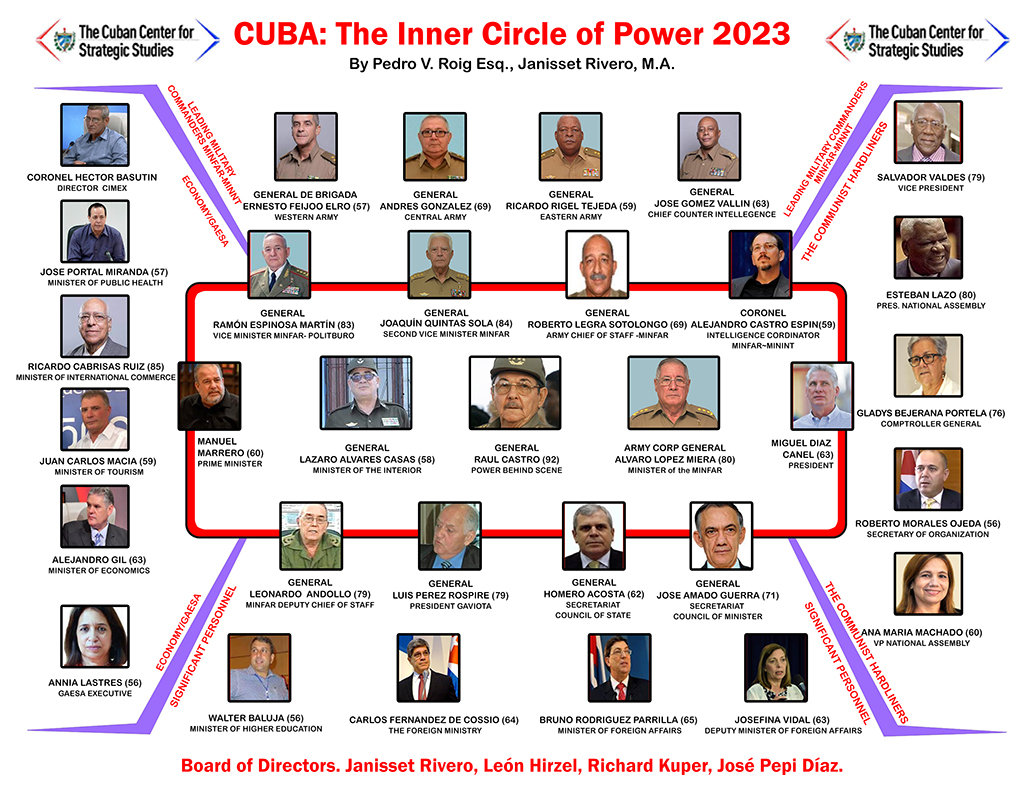Two years after unprecedented anti-government protests rocked communist Cuba, the deep economic and social problems that drove people to challenge a government notoriously intolerant of dissent have only gotten worse, AFP reports:
There are endless queues for food, fuel and medicine, inflation is in the double digits, tourism is battling to recover, and there has been a drop in sugar production — another mainstay of the economy. A lack of foreign currency and peso devaluation have caused prices to rise and ever more Cubans are seeking to flee the island.
On the eve of the second anniversary of the July 11, 2021, Cuban protests, a bipartisan group of members of Congress reflected that the watershed moment continues to fuel movement away from the Communist regime. However, members also warned of new threats from that regime, including concerns of a growing alliance between Cuba and China, NPR reports:
House Foreign Affairs Committee Chairman Michael McCaul led the roundtable discussion (above) for the six-member group, which included Republican and Democratic members of the Florida delegation, who joined a panel of Cuban activists [including partners of the National Endowment for Democracy (NED)]… The 2021 protests, held in response to critical supply shortages in the wake of the pandemic. marked the largest such demonstrations in Cuba in decades. Two years later, nearly 800 Cubans remain detained, including children, in connection with the protests, McCaul noted.
They include Maykel “Osorbo” Castillo Pérez, who collaborated with a group of performers for the Feb. 2021 hip-hop song “Patria y Vida” (below) or homeland and life, that became a chant during the protests. Another collaborator, Eliécer “el Funky” Márquez, was able to leave Cuba for the U.S. soon after.
The U.S. State Department rejected the regime’s predictable claims that the U.S. orchestrated the protests and reiterated calls for the immediate release of some 700 Cuban political prisoners, Reuters adds.
“As the entire world knows, the Cuban people protested for themselves,” a U.S. State Department official said, adding that “the regime continues to violently repress virtually any kind of peaceful public dissent and detains, harasses, and threatens families of detained protesters who dare speak publicly about their detained family members.”
 Power of the Imponderable
Power of the Imponderable
The 11th of July Popular Uprising (11J) of 2021 marked a watershed moment for the communist dictatorship in Cuba, notes analyst Julio M. Shiling. Castro-Communism was caught completely off guard. Over seventy-two localities in Cuba witnessed popular demands for the end of socialism and tyranny. The Marxist dialectical motor of history had suddenly deviated from the Leninist script. This revealed two important facts:
- One, the Cuban people, despite having suffered over six decades of communist counterculture inculcation, were decidedly calling for deep-rooted systemic change….. The Cuban people were exercising their natural rights and appealing to the preeminent morality of natural law.
- The second seminal aspect of 11J was the affirmation that Castroism is vulnerable. Totalitarian regimes depend on their ability to streamline predictability in social behavior…… The regime’s ability to stifle political opposition in the public realm was totally defeated on 11J.
2 years after historic #11J protests, the Cuban government continues to crack down on freedom of expression and the press. Normando Hernández of @ICLEP speaks about the need to amplify Cubans’ voices and defend their rights: https://t.co/xMdSTZBg6q
— NEDemocracy (@NEDemocracy) July 11, 2023
“In the short term, the government has very little room to maneuver,” Cuban political scientist Arturo Lopez-Levy, who works at the Autonomous University of Madrid, told AFP. Diaz-Canel, in office since 2018, has been hobbled by “precarious levels of food and energy security” bequeathed by his predecessors Fidel and Raul Castro, said Lopez-Levy.
For sociologist Rafael Hernandez, editor of the Temas social sciences magazine, the demonstrations were a telling “erosion of… government credibility, of its policies for emerging from the crisis.”
Raúl Castro lacked the theatrical skills of Fidel Castro, but he hand–picked the military inner circle of power (above), historian Pedro V. Roig and Janisset Rivero write in a new report for the Cuban Center for Strategic Studies.
2021’s #11J protests marked the largest demonstrations in Cuba since the 1959 revolution, clearly showing widespread discontent with the politically repressive status quo.
We stand with Cubans demanding accountability, transparency, & basic rights from their govt. #SOSCuba pic.twitter.com/62JAkhjFmo
— Freedom House (@freedomhouse) July 11, 2023







